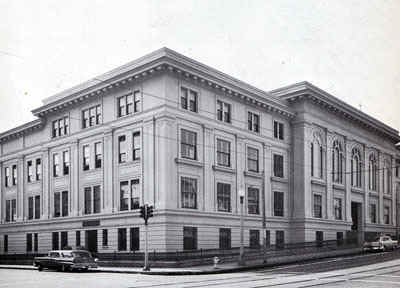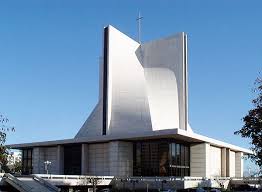This is another of those "For Our Children's Children" type
of entries.
Today I received an e-mail from a woman named Audrey Long who works
for a company named Live Oak Legacies, a
family history service that helps families capture and preserve the most important family
memories, to save for future generations.
A growing number of families are turning to professionals to record their family stories, employing “personal historians” to sit and ask the open-ended questions they don’t have time to ask during the rush of holiday gatherings or the sporadic bursts of long-distance communication.
She wanted to write a brief entry for this journal, but I told her
that as for me personally, I've been preserving our own family history for years, in
photos, journal entries, videos, and interviews. I wished her well in her endeavors
and I've included a link to her page for those who might be interested in checking it out.
The brief exchange had me thinking of preserving more of my own
history. It's so different from our children's.
We moved here to Davis in 1973. We are 2-1/2 blocks from the
elementary school, it's another 2 blocks to the middle school and two blocks to the high
school. The library and theater (where they performed) are just on the other side of
the high school across the street from the Catholic church.
So this was a biking family. It was before people started being
so protective of their kids and from the beginning, the kids rode their bikes to school.
I lived on a steep hill and even if I wanted to ride my bike home, I
would have to get off the bike to go either up or down the hill. It was a concrete
world with no trees (now there are trees planted in front of our flat and it looks very
strange!)
Grammar school was 0.8 miles from our house. I don't know how
old I was when I started walking to school, but pretty young, I think. I walked two
blocks to my friend Gayle's house. On the way I passed Macondray Lane, the little
alley that Armisted Maupin's "Tales of the City" described as "Barbary
Lane."
From Gayle's house, we walked and picked up Maryanne, who lived a
block away, and then Georgette, who lived 3 blocks from there. When we got Georgette we
were at the halfway point and we continued on to school. I carried a metal lunchbox.
I think it was just a plain colored lid--in the early days it may have
been in the days before they started putting TV shows on lunch boxes.
My mother always made me a sandwich with balloon bread and it varied
among peanutbutter and jelly, bologna with mayonnaise, salami with butter (I never did
figure out why no mayo on the salami), or American cheese with mayo. Never lettuce
or tomato on the sandwiches. Sometimes she made deviled egg or tuna salad. She
always cut the sandwiches into two triangles and wrapped them in waxed paper. The
lunch was rounded out by a piece of fruit and some sort of sweet--cookies or cake or
something like that. I also had a thermos bottle of milk. I can't begin to
count the number of thermos bottles I broke when I dropped it, breaking the glass lining!
If we brought our lunch, we ate in the multi purposes room, where we
sat on benches around the side of the room. I probably bought lunch now and then,
but I don't really remember doing that much. Except that is where I learned to hate
canned green beans. We ate bought lunches in the cafeteria.
Our school was a big concrete block.

The school went from kindergarten to 8th grade and the 7th and 8th
graders were on the top floor. They had their own bathroom because it had Kotex for
the girls and we younger kids weren't supposed to know about things like that.
It was a mile and a half to St. Vincent High School and I used public
transportation. The No. 41 Union bus stopped at the top of our hill and I would take
that down to Van Ness Ave. (4 blocks) and transfer to the 45 Van Ness and take that to
Geary Blvd. But my alternate route, and my preferred one, was to walk a block to
Hyde Street and catch the cable car (at that hour of the day it was tourist-free) and take
it dwn to Geary Blvd, and then get on the 38 bus and ride up to the stop right by my
school. We had school bus passes and it cost 15 cents, even for the cable car.
The school didn't look particularly special from the outside.

But inside it was gorgeous. The students entered by that door
behind the car on the left, but if you were coming for the first time, or a parent coming
to see the sisters, you entered by the big door on the right, in front of the light
colored car. Inside the building was beautiful wood paneling, with a sweeping
staircase on the right that went up to the school chapel (the rounded windows at the top
on the right)
 That
school no longer exists. It was torn down so the Bishop could build his new
cathedral there, forever identified as the washing machine agitator. The old cathedral had
burned down (we always suspected the Bishop set it on fire so he could get rid of it) and
our school was combined with Sacred Heart School, which was the boys' high school a block
away.
That
school no longer exists. It was torn down so the Bishop could build his new
cathedral there, forever identified as the washing machine agitator. The old cathedral had
burned down (we always suspected the Bishop set it on fire so he could get rid of it) and
our school was combined with Sacred Heart School, which was the boys' high school a block
away.
Sadly, the new school is "Sacred Heart-Cathedral School" so
St. Vincent has disappeared completely. It killed me to think of that beautiful staircase
being torn down.
Moving the schools into new buildings and building the church
involved tearing down all the slum housing in the neighborhood and putting up high priced
high rises. I have often wondered what happened to all those poor people when they
evicted them to erect that monstrosity. I remember one Chinese family of 8 living in
a one room apartment across the street from the school. The nuns used to bring them
food and when the kids were baptized, I was godmother to two of them.
Later, when I graduated from high school and changed my mind about
entering the convent, for the six months before I was to start UC Berkeley, I attended
night school at the University of San Francisco, where I took French. That commute was fun
because I rode the cable car all the way down to the end of the line on Market Street.
Coming back after class, I often watched A Star Is Born, which seemed to
run forever at a little theater right where the cable car turns around.
It only cost 50 cents to get in and even if I only saw the last half hour of the
movie, that was fine.


1 comment:
I was in 4th grade when we moved to Houston. When I got into junior high (7-9th grades), I used to ride the bus into downtown Houston and just walk around the stores. I couldn't imagine letting our children do that - even if the buses and the downtown stores had still been there. LOL
p.s. What is "balloon bread? New term for me.
Post a Comment